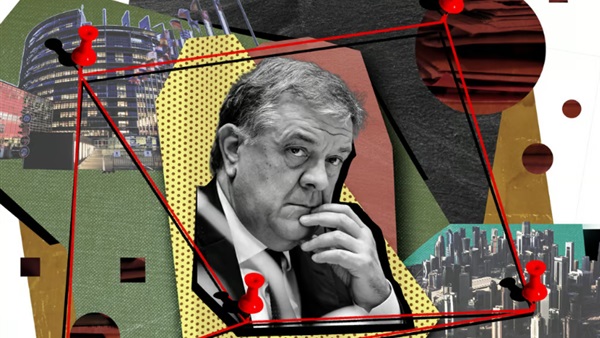Qatar used secret deal to bind itself to EU Parliament, raising concerns about corruption

Qatar signed a secret agreement with the European Parliament
that raised concerns about possible corruption and undue influence, according
to a report by Politico. The agreement, signed in 2018, created a
"friendship group" between Qatar and the European Parliament, which
allowed Qatari officials to participate in meetings with members of the parliament
and provide input on legislation.
The agreement was signed by Eva Kaili, a Greek member of the
European Parliament, and Pier Antonio Panzeri, an Italian member, on behalf of
the parliament's Foreign Affairs Committee. Kaili and Panzeri have since been
criticized for their role in the deal, with some accusing them of violating the
parliament's code of conduct.
Critics of the deal say that it allowed Qatar to exert undue
influence over the European Parliament and its decision-making process. They
argue that it raises questions about the transparency and accountability of the
parliament, which is supposed to represent the interests of the European
Union's citizens.
However, others argue that the deal was simply a way for
Qatar to establish a relationship with the European Parliament and advocate for
its interests. They say that it is not uncommon for governments and businesses
to establish such relationships with lawmakers and that there is nothing
inherently corrupt about the practice.
The controversy surrounding the agreement highlights the
challenges that lawmakers face in navigating relationships with foreign
governments and businesses. On one hand, they must maintain transparency and
accountability to their constituents. On the other hand, they must also engage
with foreign entities to promote the interests of their countries and the
European Union as a whole.
The European Parliament has since launched an investigation
into the agreement, with some members calling for Kaili and Panzeri to be
disciplined. The investigation is ongoing, and its findings could have
significant implications for the relationship between the European Union and
Qatar, as well as for the transparency and accountability of the European
Parliament.
The European Parliament has long been a vocal critic of
Qatar's human rights record, including its treatment of migrant workers and
restrictions on freedom of speech and assembly. The recent revelations have
raised concerns among some MEPs about Qatar's influence in the parliament and the
potential for corruption.
MEPs have called for a full investigation into the matter,
with some suggesting that the secret agreement may have violated the EU's code
of conduct for lobbyists. They have also urged the European Parliament to take
steps to ensure that its members are not subject to undue influence from
foreign governments or corporations.
Eva Kaili, a Greek MEP who has been a vocal critic of
Qatar's human rights record, called the revelations "extremely
concerning" and urged the parliament to take action. "The European
Parliament must be vigilant against any attempt to influence its work and to
protect the integrity of its members," she said in a statement.
Pier Antonio Panzeri, an Italian MEP who has also been
critical of Qatar's human rights record, called for a "thorough
investigation" into the matter. "It is absolutely unacceptable for a
foreign government or any other entity to attempt to influence the work of the
European Parliament," he said.
The revelations come at a time of growing concern about
foreign influence in European politics. The EU has been working to strengthen
its rules on lobbying and transparency, but critics say that more needs to be
done to ensure that the democratic process is not undermined by outside
interests.
Qatar has denied any wrongdoing and said that its
relationship with the European Parliament is transparent and above board.
"Qatar respects the integrity and independence of the European Parliament
and has never sought to influence its work in any way," a spokesperson for
the Qatari embassy in Brussels said.
Despite the denials, the revelations have raised questions
about the extent of Qatar's influence in the EU and the potential for
corruption. Some MEPs are calling for greater transparency and accountability
in the lobbying process, as well as stronger rules to prevent foreign
governments and corporations from exerting undue influence over European
politics.
The European Parliament is expected to hold a debate on the
issue in the coming weeks, and some MEPs have called for a resolution to be
passed calling for greater transparency and accountability in the lobbying
process. The debate is likely to focus on the need for stronger rules to
prevent foreign influence in European politics, and the need to protect the integrity
of the democratic process.









